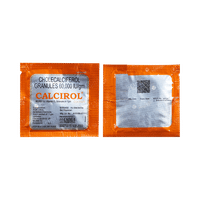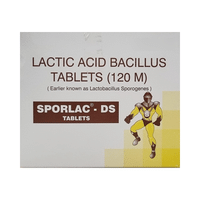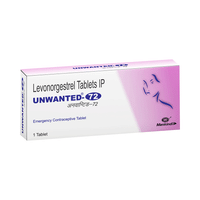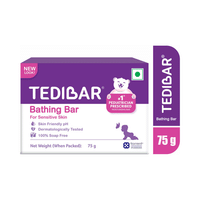Benalgis Forte Soft Gelatin Capsule
Rs.243for 1 bottle(s) (15 soft gelatin capsules each)
Available in other variants
food interaction for Benalgis
alcohol interaction for Benalgis
pregnancy interaction for Benalgis
lactation interaction for Benalgis
food
alcohol
pregnancy
lactation
Benalgis Forte Soft Gelatin Capsule may be taken with or without food, but it is better to take it at a fixed time.
None
None
CAUTION
Caution is advised when consuming alcohol with Benalgis Forte Soft Gelatin Capsule. Please consult your doctor.
CAUTION
Benalgis Forte Soft Gelatin Capsule may be unsafe to use during pregnancy. Although there are limited studies in humans, animal studies have shown harmful effects on the developing baby. Your doctor will weigh the benefits and any potential risks before prescribing it to you. Please consult your doctor.
CONSULT YOUR DOCTOR
Benalgis Forte Soft Gelatin Capsule is probably unsafe to use during breastfeeding. Limited human data suggests that the drug may pass into the breastmilk and harm the baby.
CONSULT YOUR DOCTOR
SALT INFORMATION FOR Benalgis
Benfotiamine(7.5mg)
Uses
Benfotiamine is used in the treatment of nutritional deficiencies.
How it works
Benfotiamine provides essential nutrients.
Common side effects
Allergic reaction, Gastrointestinal disorder, Nausea
Folic Acid(0.750mg)
Uses
Folic Acid is used in the treatment of anemia due to folic acid deficiency.
How it works
Folic Acid is a form of vitamin B. It plays a vital role in the formation of red blood cells, which carry oxygen throughout the body. It is also essential in pregnancy due to its role in the development of the unborn baby's brain and spinal cord.
Common side effects
No common side effects seen
Methylcobalamin(0.750mg)
Uses
Methylcobalamin is used in vitamin B12 deficiency.
How it works
Methylcobalamin is a form of vitamin B12 that restores its level in the body thereby helping in treating certain anemias and nerve problems.
Common side effects
Decreased appetite, Diarrhea, Nausea, Rash
Pregabalin(75mg)
Uses
How it works
Pregabalin is an antiepileptic medication. When given for epilepsy, it is believed to work by reducing the abnormal electrical activity in the brain, thus preventing seizures. It is also used to treat nerve pain where it blocks pain by interfering with pain signals travelling through the damaged nerves and the brain. For treatment of anxiety, it is believed to work by stopping the release of certain chemical messengers (neurotransmitters) that make you feel anxious.
Common side effects
Sleepiness, Weight gain, Dryness in mouth, Blurred vision, Dizziness, Headache, Peripheral edema, Fluctuating blood pressure, Hypoglycemia (low blood glucose level), Gastrointestinal intolerance, Low blood platelets, Abnormal gait, Joint pain, Visual disturbance, Nasopharyngitis (inflammation of the throat and nasal passages), Bronchitis (inflammation of the airways), Anaphylactic reaction, Abnormal ECG, Stevens-Johnson syndrome, Heart failure, Blood cell abnormalities, Increased creatine phosphokinase (CPK) level in blood, Infection, Gastrointestinal disturbance
Vitamin B6 (Pyridoxine)(1.5mg)
Uses
Vitamin B6 (Pyridoxine) is used in the treatment of nutritional deficiencies.
How it works
Vitamin B6 (Pyridoxine) provides essential nutrients.
Common side effects
Burning sensation, Tightness sensation, Headache, Nausea, Sleepiness, Upset stomach, Paresthesia (tingling or pricking sensation)
SUBSTITUTES FOR Benalgis
No substitutes foundFrequently asked questions FOR Benalgis
Benfotiamine
Q. What is Benfotiamine?
Benfotiamine is a dietary supplement of thiamine. It is also known as Vitamin B1. The medicine is used in the treatment of low levels of thiamine in the body. It protects the body from conditions which are caused due to low levels of thiamine such as heart, brain and nerve disorders.
Q. What does Benfotiamine do?
Benfotiamine contains vitamin B1. This vitamin is needed to process carbohydrates, fat and protein in the body. Our body requires vitamin B1 to form the fuel the body runs on i.e., adenosine triphosphate (ATP). Benfotiamine provides the necessary dose of vitamin B1 which is used by nerve cells in order to function normally.
Q. Who all are more likely to have deficiency of vitamin B1?
The levels of vitamin B1 in our body decline with age, irrespective of medical condition. Deficiency is most commonly found in alcoholics, people with malabsorption conditions, and those eating a very poor diet. It is also common in children with congenital heart disease. Individuals undergoing regular kidney dialysis may develop severe vitamin B1 deficiency, which can result in potentially fatal complications. So, it is advisable that persons receiving dialysis should discuss the need for the use of Benfotiamine with their physician.
Folic Acid
Q. Is it ok to take Folic Acid when not pregnant?
Usually, folic acid requirements are met from the diet and therefore additional supplements are not required. In general, Folic Acid is recommended only when you have a deficiency of folic acid. However, Folic Acid is advised to women who are pregnant and who want to conceive. The medicine should be taken at least 4 weeks before pregnancy and should continue its use up to 3 months of pregnancy. Consult your doctor if not sure.
Q. Can Folic Acid cause weight gain?
Animal studies on Folic Acid suggest that taking the medicine in excess along with a high-fat diet may lead to weight gain and fat accumulation. But this weight gain was not evident when taken along with a normal or low-fat diet, even with excess Folic Acid. In humans, similar studies have not been conducted and therefore knowledge regarding weight gain is lacking. Therefore, if you are on Folic Acid eat a low-fat meal to be on the safer side.
Q. How long does Folic Acid take to work?
Folic Acid usually starts working within a few hours of taking it. If you are taking it for iron deficiency anemia, you may start feeling better after a few weeks of taking it. In case you are taking it during pregnancy, you may not notice any difference but this does not mean that the dose is not working. Continue taking Folic Acid for the duration recommended by your doctor.
Methylcobalamin
Q. What is Methylcobalamin?
Methylcobalamin contains vitamin B12. Vitamin B12 is an essential nutrient which is required by the body to make red blood cells and maintain a healthy nervous system. It is also important for releasing energy from food and using vitamin B11 (folic acid).
Q. Why can’t I get sufficient vitamin B12 from my diet?
You can get vitamin B12 from sources like meat, fish, eggs and dairy products. While people who are vegetarian or vegan may not get Vitamin B12 as it is not found naturally in foods such as fruits, vegetables and grains. Therefore, deficiency of Vitamin B12 is usually noticed in vegetarians or vegans.
Q. What happens if I have vitamin B12 deficiency?
Deficiency of vitamin B12 may cause tiredness, weakness, constipation, loss of appetite, weight loss and megaloblastic anemia (a condition when red blood cells become larger in size than normal). It may also lead to nerve problems such as numbness and tingling in the hands and feet. Other symptoms of vitamin B12 deficiency may include problems with balance, depression, confusion, dementia, poor memory and soreness of the mouth or tongue.
Pregabalin
Q. What is Pregabalin and what is it used for?
Pregabalin belongs to the anticonvulsants class of medicines. It is used to treat seizures. It is also helpful in treating nerve pain (neuropathic pain) which could be due to diabetes, shingles, or injury. It is also used in fibromyalgia (a long-lasting condition that may cause pain, tiredness, muscle stiffness and tenderness as well as difficulty falling or staying asleep. In some cases, your doctor may prescribe this medicine for the treatment of anxiety.
Q. Pregabalin has varied roles. Does it work in the same way for each disease?
No, Pregabalin works in different ways for different diseases. In epilepsy, it stops seizures by reducing the abnormal electrical activity in the brain. In chronic pain, it blocks pain messages travelling from brain to spine.
Q. I have been prescribed Pregabalin for pain due to shingles. When can I expect relief from pain?
It may take a few weeks to see full benefits while taking Pregabalin. However, people have experienced relief from pain after a week of starting Pregabalin.






















